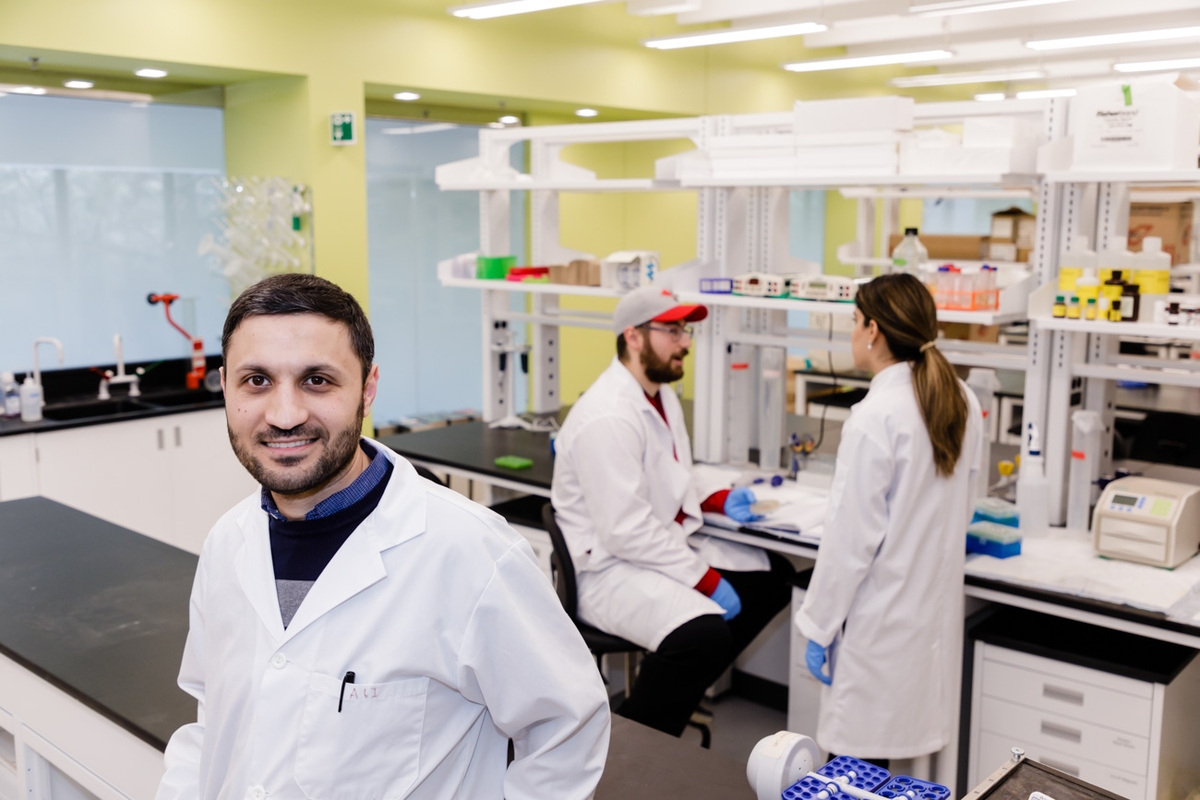We reach more than 65,000 registered users in Dec!! Register Now

Breakthrough study discovers genetic mutation could be basis for novel treatment of rheumatoid arthritis
- April 13, 2025
- 3 Views
- 0 Likes
- 0 Comment
York U researcher says mice with a specific variation on a protein called TRAF1 have dramatically less inflammation and swelling than normal mice and were protected from sepsis
TORONTO, Feb. 27, 2025 – Research led by York University’s Faculty of Health reveals how a specific mutation in a protein called TRAF1 can shut down an overactive immune response, dramatically reducing inflammation in mice. Lead researcher Ali Abdul-Sater says this discovery could pave the way for a new class of drugs to treat rheumatoid arthritis.
The study is now available online and will be published in the March issue of Journal of Autoimmunity.
Using gene-editing technology, the researchers identified a critical mutation of a protein called TRAF1 and discovered that this mutation dramatically reduces inflammation by disrupting a critical molecular interaction that fuels the immune system into kicking into overdrive.
“TRAF1 plays a central role in immune signaling and is known for its dual roles: it helps amplify inflammatory signaling in some contexts while also acting as a brake to limit overactive responses,” says Abdul-Sater. “These opposing roles have made TRAF1 a challenging target for therapeutic intervention – until now.”
A single mutation at position valine 196 (V196), the researchers found, selectively blocks TRAF1’s interaction with another protein, which dampens a major inflammatory pathway triggered by receptors which are responsible for sensing infection and tissue damage.
“The mutation effectively shuts down a cascade of molecular events that drive excessive inflammation,” says Abdul-Sater.
Rheumatoid arthritis affects one per cent of the population worldwide. In the autoimmune disease, the body starts attacking its own cells, making the joints stiff, swollen and painful. Over time, this can damage joints, cartilage and bone, making everyday tasks difficult.
Typical treatments involve broad immunosuppressants, like steroids, or biologics that inhibit specific cytokines, but these can lose effectiveness over time and can put individuals at greater risk for cancer, infections and other risks, says Abdul-Sater, which is why this discovery is so exciting.
“Such therapies could not only alleviate symptoms but also address the underlying mechanisms of inflammation, benefiting patients who do not respond to existing options.”
-30-
York University is a modern, multi-campus, urban university located in Toronto, Ontario. Backed by a diverse group of students, faculty, staff, alumni and partners, we bring a uniquely global perspective to help solve societal challenges, drive positive change, and prepare our students for success. York's fully bilingual Glendon Campus is home to Southern Ontario's Centre of Excellence for French Language and Bilingual Postsecondary Education. York’s campuses in Costa Rica and India offer students exceptional transnational learning opportunities and innovative programs. Together, we can make things right for our communities, our planet, and our future.
List of Referenes
- Yitian Tang, Fatemah Aleithan, Sahib Singh Madahar, Ali Mirzaesmaeili, Sunpreet Saran, Jialing Tang, Safoura Zangiabadi, Robert Inman, Gary Sweeney, Ali A. Abdul-Sater. Selective disruption of Traf1/cIAP2 interaction attenuates inflammatory responses and rheumatoid arthritis. Journal of Autoimmunity, 2025; 152: 103377 DOI: 10.1016/j.jaut.2025.103377
Cite This Article as
No tags found for this post









